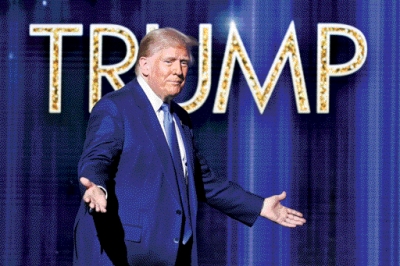[대학생을 위한 비즈니스 영어] 'After a bruising,...'
-
기사 스크랩
-
공유
-
댓글
-
클린뷰
-
프린트
[ After a bruising, the case for optimism ]
How bad will the economic damage be?
While the outlook is still clouded by lingering uncertainty in the wake of the attacks of Sept.11, two views are forming about the economy's future.
One is that a vicious cycle could cause real gross domestic product to shrink for perhaps as long as a year.
Already,consumers stopped buying right after the attacks, and companies are warning about declines in business activity and profits.
The sharp sell-off of the stock market from Sept.17 to 19 suggests that many investors may be holding to this "worst-case" scenario.
Another view argues that any downturn will be brief, followed by a solid recovery.
This seems the more likely forecast because monetary and fiscal policymakers around the world are using billions of dollars to stabilize the financial system and restore confidence.
As a result, some economists expect U.S.real GDP to drop only in the third quarter.
Given the unprecedented tragedy and destruction of Sept.11, the economy remains in uncharted waters.
The best guides to the attacks' immediate effects will be the weekly indicators, along with some key monthly data tracking the mood of consumers.
Clearly, the mood of investors is pitch black.
After being closed for four days, the stock markets opened to a fever of selling.
The Dow Jones industrial average plunged 685 points on Sept.17, the first day of resumed trading, another 17 points on Sept.18, and then dropped 144 points on Sept.19.
Undoubtedly, investors are nervous about war prospects or more terrorist attacks.
But, most important, the drop indicates that investors see a weaker economy and heightened global uncertainty leading to bigger profit shortfalls than Wall Street had forecast prior to the attacks.
Indeed, as the bad news continues to break over investors' heads, Wall Street is beginning to believe that the short-term costs to the economy might be higher than first thought.
---------------------------------------------------------------
< 상처후에도 피어나는 낙관론 >
미국경제의 피해규모는 어느 정도나 될까.
테러공격 이후 불확실성이 가중되면서 향후 전망이 어두운 가운데 미국경제의 미래에 대해 두 가지 관점이 제시되고 있다.
먼저 악순환이 반복되면서 실질 GDP가 약 1년쯤 위축될 것이란 시각이다.
소비자들은 테러 이후 구매활동을 중단했으며 기업은 기업활동과 수익 격감을 경고하고 있다.
지난 17일부터 19일까지 대규모 주식투매가 이어진 것은 투자자중 상당수가 이같은 '최악의' 시나리오를 받아들였다는 의미로 해석된다.
또 다른 관점은 경기하강이 단기에 그치면서 안정적인 회복세로 돌아설 것이란 전망이다.
이 시나리오는 세계의 통화 및 재무관련 정책결정자들이 금융시스템을 안정시키고 자신감을 회복하기 위해 수십억달러를 쏟아붇고 있다는 점에서 좀더 그럴 듯한 관측이다.
이에 따라 일부 전문가들은 미국의 실질 GDP가 이번 3.4분기에만 감소할 것으로 보고 있다.
지난 9월11일 사상 초유의 비극과 대참사가 발생한 후 경제는 예측불허의 상황이다.
테러공격의 즉각적인 영향을 알아보기 위해서는 소비자 동향을 측정할 수 있는 주간이나 월간 지표 등이 가장 효과적이다.
투자심리는 분명 칠흑같은 암흑이다.
증시가 나흘간 문을 닫았다가 재개장됐을 때 분위기는 매도일색이었다.
다우존스 공업평균지수는 재개장 첫날인 17일 6백85포인트 하락했고 그 이튿날 17포인트, 다음달 1백44포인트 떨어졌다.
투자자들은 전쟁이나 테러범들의 추가공격을 우려하고 있다.
하지만 더욱 중요한 사실은 투자자들이 테러 이전 전망했던 것보다 더 큰 폭의 수익감소를 이끌 수 있는 경기위축과 세계적인 불안확산 등을 내다보고 있다는 것이다.
좋지 않은 소식이 계속 투자자들의 머리 속을 떠나지 않는다면 단기적인 경제비용이 처음 생각보다 더 커질 수도 있다.
![희토류 칼 뽑은 중국, 반사이익 노리는 서방 기업들 [원자재 이슈탐구]](https://img.hankyung.com/photo/202412/01.38882550.3.jpg)

